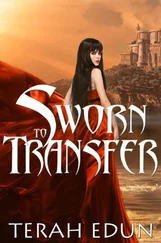Aelfgifu's chamberlain was glaring at me. 'Are you Thorgils?' he asked curtly. 'You're late. Ever ridden a horse before?'
I nodded cautiously. In Iceland I had occasionally ridden the sturdy little Icelandic horses. But they stood close enough to the ground for the rider not to get hurt when he fell off, and there were no roads, only tracks across the moors, so the landing was usually soft enough if you were not so unlucky as to fall on a rock. But I did not fancy trying to get on the back of anything resembling the bad-tempered stallions the two huscarls were now astride. To my relief the chamberlain nodded towards a shaggy and dispirited-looking mare tied up to the tail of one of the carts. Her aged head was drooping. 'Take that animal. Or walk.' Soon our motley cavalcade was creaking and clopping its way out of the city, and I was wondering whether there had not been a change of plan. Nowhere could I see my adored Aelfgifu.
She joined us in a thunder of cantering hooves when we had already crawled along for some five miles. 'Here she comes, riding like a Valkyrie as usual,' I heard the one-handed huscarl remark approvingly to his colleague, as they turned in their saddles to watch the young queen approach. On my plodding creature I twisted round as well, trying not to make my interest obvious, but my heart was pounding. There she was, riding like a man, her loose hair streaming out behind her. With a pang of jealousy I noted that she was accompanied by two or three young noblemen, Saxons by the look of them. A moment later the little group were swirling past us, chattering and whooping with delight as they took up their places as the head of the little group, then reined in their horses to match our trudging progress. Clumping along on my ugly nag, I felt hot and ashamed. I had not really expected that Aelfgifu would even glance at me, but I was so lovelorn that I still hoped she would catch my eye. She had ignored me entirely.
For four unhappy days I stayed at the back of the little column, and the most I ever saw of Aelfgifu was an occasional glimpse of her shapely back among the leading horsemen with her companions. It was torture for me whenever one of the young men leaned across towards her to exchange some confidence, or I saw her throw back her head and laugh at a witty remark. Sour with jealousy, I tried to learn who her companions were, but my fellow travellers were a taciturn lot. They could only tell me that they were high-born Saxons, ealdormen's spawn.
The journey was torture for another reason. My lacklustre mount proved to be the most leaden-footed, iron-mouthed creature that ever escaped the butcher's knife. The brute plodded along, slamming down her feet so that the impact of each hoof fall rattled up my spine. My saddle, the cheapest variety and made of wood, was an agony. Each time I dismounted I hobbled like a crone, so stiff that I could not walk properly. Life on the road was no better. I had to work for every yard of progress, kicking and slapping at the flanks of the sluggish creature to make her go forward. And when the mare decided to leave the main track and head for a mouthful of spring grass, there was nothing I could do to prevent her. I hit her between the ears with a hazel rod I cut for the purpose, and heaved on the reins. But the creature merely turned her ugly head to one side and kept walking in a straight line towards her target. On one embarrassing occasion she tripped and the two of us went sprawling in the dirt. As soon as the mare had her head down and started eating, I was helpless. I pulled on the reins till my arms ached and kicked her in the ribs, but there was no response. Only when the obstinate brute had eaten her fill would she raise her head and lumber back to the main track while I swore in rage.
'Try to keep up with the group,' One Hand warned me gruffly as he rode back down the column to see that all was in order. 'I don't want any stragglers.'
'I'm sorry,' I replied. 'I'm having difficulty controlling my horse.'
'If it is a horse' commented the huscarl, regarding the ill— shapen monster. 'I don't think I've ever seen such an ugly nag. Has it got a name?'
'I don't know,' I said, and then added without thinking, 'I'm calling her Jarnvidja.'
The huscarl gave me a funny look, before wheeling about and riding off. Jarnvidja means 'iron hag' and I realised, like Bakrauf, it is the name of a troll wife.
My dawdling horse allowed me plenty of opportunity to observe the countryside of England. The land was astonishingly prosperous despite the recent wars. Village followed village in quick succession. Most were neat and well tended — a dozen or so thatched houses constructed with walls of wattle and daub or wooden planks and set on either side of the muddy street or at a crossroads. Many had gardens front and back and, beyond their barns, pigsties and sheep sheds, were well-tended fields stretching away to the edge of forests or moorland. If the place was important enough there might be a larger house for the local magnate with its little chapel, or even a small church built of wood. Sometimes I noticed a stonemason at work, laying the foundations for a more substantial church tower. It seemed that the worship of the White Christ was spreading at remarkable speed, even in the countryside. I never saw a shrine to Old Ways, only tattered little strips of votive rags hanging from every great oak tree we passed, indicating that the Elder Faith had not entirely vanished.
Our party was travelling across country in an almost straight line and I thought this strange. The roads and tracks I had known in Iceland and Ireland meandered here and there, keeping to the high ground to avoid boglands and turning aside to shun the thickest forests. But the English road cut straight across country, or nearly so. When I looked more closely, I realised that our heavy carts were rolling and creaking along a prepared track, rutted and battered but still discernible, with occasional paving slabs and a raised embankment.
When I enquired, I was told that this was a legacy of the Roman days, a road called Watling Street and that, although the original bridges and causeways had long since collapsed or been washed away, it was the duty of the local villages to maintain and repair the track. They often failed in their task, and we found ourselves splashing across fords or paying ferrymen to take us across rivers in small barges and row boats.
It was at a water splash that the appalling Jarnvidja finally disgraced me. As usual, she was plodding along at the rear of the column when she smelled water up ahead. Being thirsty, she simply barged her way forward past the wagons and other horses. Aelfgifu and her companions had already reached the ford, and their horses were standing in the shallows, cooling their feet while their riders chatted. By then I had lost all control over Jarnvidja, and my hideous mount came sliding and slithering down the bank, rudely shouldering aside a couple of horses. As I tugged futilely on the reins, Jarnvidja splashed monstrously through the shallows, her great hooves sending up a muddy spray which drenched the finery of the Saxon nobles, and spattered across the queen herself.
Then the brute stopped, plunged her ugly snout into the water and began to suck up her drink noisily, while I was forced to sit on her broad back, crimson with embarrassment, and Aelfgifu's companions glared at me as they brushed off the muck.
On the fifth day we turned aside from Watling Street and rode down a broad track through a dense forest of beech and oak until we came to our destination. Aelfgifu's home was more heavily protected that earlier settlements I had seen. It was what the Saxons call a burh and was surrounded by a massive earth bank and a heavy wooden palisade. All around for a space of about a hundred paces the forest had been cleared back to allow a field of fire for archers in case of attack. Inside the rampart the ground was laid out to accommodate a lord and his retinue. There were dormitories for servants, a small barracks for the soldiery, storehouses and a large banqueting hall next to the lord's own dwelling, a substantial manor house. As our travel-stained group entered the main gate, the inhabitants lined up to greet us. Amid the reunions, gossip and exchanges of news, I saw the two huscarls head straight for the manor house, and — to my disappointment — Aelgifu and her attendant women disappear into a separate building, the women's quarters. I dismounted and stretched my back, glad at last to be rid of my torment on the Iron Hag. A servant came forward to take the mare from me, and I was heartily glad to see her gone. Her final act of treachery was to step heavily on my foot as she was led away, and I hope never to see her again.
Читать дальше








